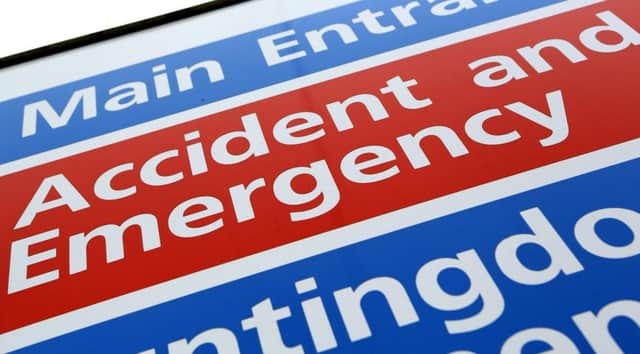Chris Burn: NHS suffering from acute case of '˜target culture'


When Professor Alexis Jay revealed in August 2014 that at least 1,400 children in Rotherham had been the victims of child sexual exploitation over 16 years, her findings shocked the world. It led to inevitable questions as to how it was allowed to happen – was this the ultimate example of political correctness gone mad, of council workers and police not tackling perpetrators of Pakistani descent because of fears it might hurt ‘community cohesion’?
Prof Jay made clear that was indeed part of the picture – while subsequent criminal trials have borne this out. Yet, while far-right groups such as the EDL and Britain First have sought to make capital from the scandal by marching through Rotherham trying to stir up racial tension, one element of what caused the scandal has gone largely unreported – target culture.
Advertisement
Hide AdAdvertisement
Hide AdPolice officers were repeatedly warned of ‘entrenched’ sexual exploitation in Rotherham and Sheffield as long ago as 2003 and even provided with a list of suspects’ names.
One officer at the time reportedly said that such crimes were ‘awful’ – but the force’s priority was meeting Home Office-imposed targets on tackling burglary and car crime, with senior officers paid bonuses for reaching Government goals.
As the years went by, and abusers became more confident in realising they could sexually exploit children in the town for profit with apparent impunity, the problem grew and grew, with more and more victims, more and more families destroyed, more and more lives shattered.
Prime Minister Theresa May herself highlighted how target culture had played a part.
Advertisement
Hide AdAdvertisement
Hide AdThe then Home Secretary said in 2015 that South Yorkshire had “a police force allegedly so intent on meeting Home Office targets about car theft and burglary that it ignored hundreds of young girls being abused in Rotherham and Sheffield”.
Mrs May went as far as to say that ‘enough was enough’ and that she would ‘root out’ target culture from the police force forever. But that lesson does not appear to be have been learnt in the health service.
There now appears to be a parallel in the NHS where an attempt to meet a seemingly sensible aim – reducing burglaries in the case of the police and ensuring A&E patients are seen within four hours in the NHS – has become a bigger priority than the wider public service that each organisation is supposed to provide.
On paper, there is a clear case for the waiting time target, designed to save patients from distress and pain by ensuring they receive prompt treatment.
Advertisement
Hide AdAdvertisement
Hide AdBut research regarding the national target of 95 per cent of people visiting A&E being assessed within four hours shows a clear trend that more patients are admitted as the deadline approaches – not necessarily because it is right for their needs, but because staff are under pressure to hit the target.
There are huge spikes in the percentage of patients being admitted for emergency care in the final 60 minutes before the four-hour deadline, with large drops in the number of those being sent away to find more appropriate treatment. The consequence in Blackburn was seriously-ill patients being admitted, and then left on trollies, under the care of dedicated ‘corridor nurses’.
Of course, waiting time targets are far from the only issue facing the NHS. But doctors and nurses, who dedicate their working lives to caring for others, should be trusted to provide the best care possible in the most timely and effective manner available rather than being servants of a prescriptive Whitehall target.
There are some signs that the NHS is trying to address this – with many of the new ‘Sustainability and Transformation Plans’ being developed across the country to meet a £22bn funding gap placing a greater focus on prevention rather than cure.
Advertisement
Hide AdAdvertisement
Hide AdBut even these plans still include ambitious targets that have the potential to cause great headaches – and put care at risk.
There is a clear danger that the new targets on the horizon to help save the NHS money – such as cutting A&E attendances by 30 per cent – will simply exacerbate a situation where medical staff have to worry about hitting goals instead of giving each person the best possible care.
In Rotherham, each crime report should have been treated on its merits, with the question of whether it would meet a Home Office target being irrelevant.
And in the NHS, our skilled healthcare staff must be allowed to do likewise and put patient care before any other considerations.
Chris Burn is a features writer on The Yorkshire Post.